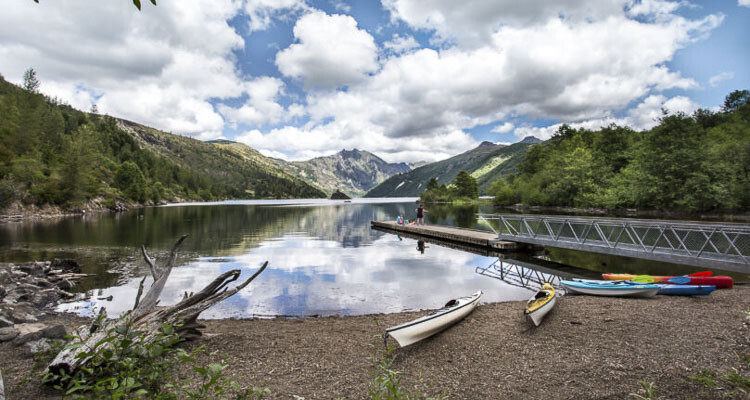
Lasting anywhere from 30 seconds to a couple of minutes, the cold-shock response can be deadly by itself
As temperatures heat up this week across Washington and people seek relief in waterways across the state, Rep. Peter Abbarno is warning potential swimmers against the deadly risk of cold-water shock.
“The outdoor temperatures may be reaching into the 80s or higher, but our rivers, streams and lakes are still being fed by extremely cold mountain water. These low temperatures are very dangerous right now to swimmers who very easily could experience cold-water shock,” said Abbarno, R-Centralia.
According to the U.S. Coast Guard, the human body responds to cold water immersion with an increased heartbeat and blood pressure, faster breathing, uncontrolled gasping, and sometimes uncontrolled movement. Lasting anywhere from 30 seconds to a couple of minutes, the cold-shock response can be deadly by itself. Victims may panic, take on water in that first uncontrolled gasp, cold incapacitation sets in, making it difficult for the person to move arms and legs, hypothermia begins, and as many as 20% die in the first two minutes.
Abbarno is the prime sponsor of House Bill 1004, also known as “Zack’s Law,” which is named in honor of 18-year-old Zachary Lee Rager, an experienced swimmer who fell victim to cold-water shock and drowned in the Chehalis River on March 23, 2021. The bill, which passed the Legislature unanimously during the 2023 session and was signed into law, requires state government agencies and local governments to erect signs warning of drowning hazards when replacing or erecting signs near dangerous water hazards.
“Many people don’t know the dangers of cold-water shock. Unfortunately, Zack found out how cold that water was when he jumped in. He immediately gasped. He went under the water and his friends never saw him again,” said Abbarno. “I want to make sure other families do not experience that tragedy and heartbreaking loss of a loved one to this hidden and deadly danger. The first step is to prevention is awareness.”
Abbarno noted just this week, emergency crews from the Lacey area rescued seven people rafting in the Nisqually River who ended up in the cold water.
“Emergency officials say that although these people were not hurt, they were unprepared with inadequate equipment, had no life jackets, and it could have turned out much worse,” said Abbarno.
“As a father and a husband, I enjoy recreational activities outdoors with my family all the time. I’m not discouraging others from spending quality time with their families outdoors across our beautiful Washington state. But let’s look out for each other and make sure everyone is aware of this preventable danger so we all can enjoy many sunny outdoor days ahead,” Abbarno concluded.
Information provided by Washington State House Republicans
houserepublicans.wa.gov
Also read:
- Court rules against Save Vancouver Streets A judge has ruled against Save Vancouver Streets in its legal effort to place a street-use initiative on the ballot. The group is considering whether to appeal.
- New WA hotline to report hate crimes launches in three countiesWashington has launched a hate crime hotline for residents of Clark, King, and Spokane counties as part of an 18-month pilot program.
- PNW longest running professional motorsports event continues with 44th edition of the Washougal NationalThe 44th Washougal National returns July 19, bringing world-class motocross and Military Appreciation festivities to Clark County’s scenic Washougal MX Park.
- Hockinson Blueberry Festival Returns Saturday, July 19The Hockinson Blueberry Festival returns July 19 with berries, contests, live music, and handmade goods at the Hockinson Community Center.
- New Les Schwab Tires store in Brush Prairie expands services in Vancouver areaLes Schwab will open a full-service tire and auto store in Brush Prairie on July 23, bringing new jobs and expanded services to the Vancouver area.
- Opinion: When bad policy fail real peopleAmy Harris says Vancouver’s failure to address street safety led to a fire that shut down a beloved immigrant-owned restaurant.
- Opinion: Fantasy math – Why the CBO’s numbers don’t add upNancy Churchill argues the CBO’s deficit math ignores key growth effects and revenue streams, calling its models misleading and politically biased.











